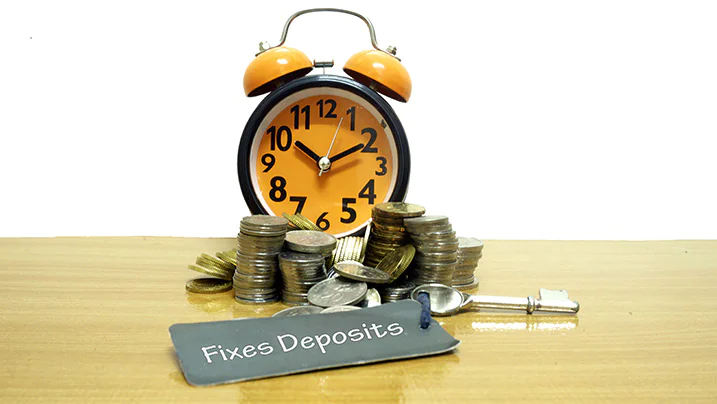A fixed deposit is an investment that requires a lump sum amount deposit for a specific tenure. Your amount remains locked in for a fixed tenure so that you can avail the interest on the deposit. Below is a guide to fixed deposit and how it is calculated.
Fixed Deposit Investment
Are you looking to make a stable income? You can get this benefit by investing your money into a fixed deposit account. The investment return remains fixed, making you a steady source of income. Let us look at the pros and cons of depositing your funds in a fixed deposit account.
|
Characteristics
|
Pros
|
Cons
|
|
Principal Amount
|
You must deposit a lump sum amount into a fixed deposit to avail the benefits of the same. Moreover, fixed deposits provide more significant returns as compared to savings accounts.
|
Fixed deposits do not accommodate EMIs.
|
|
Tenure
|
Your money is locked in for a specific tenure. You benefit from achieving a substantial amount by the end of your fixed deposit term. Fixed deposits also allow you to hold multiple FDs of different tenures. The term for fixed deposit is flexible, ranging from seven days through ten years.
|
A constant tenure keeps you from adding/withdrawing funds regularly.
|
|
Market Risk & Interest Rate
|
Fixed deposits can be risk-free investments. Your investments won’t be affected by market risks or fluctuations in the interest rate. Your principal amount is safe, and you get the scheduled returns. You also have the flexibility to select the mode of interest payment, i.e. monthly, quarterly or yearly. You get the benefit of attaining stable returns for your invested amount. In addition, senior citizens are offered a higher interest rate on fixed deposits.
|
Fixed interest rate inhibits you from taking advantage of an upswing in the market or a sudden spike in the interest rate.
|
|
Lock-in period
|
Fixed deposit investments come with a specific lock-in period. This may keep you from withdrawing your funds unnecessarily and protecting your lump sum. However, you can withdraw your funds during emergencies by paying a small penalty fee. Additionally, you have the flexibility to share your fixed deposit investment with your spouse, parents and children.
|
A penalty fee is charged in case of early withdrawal.
|
If you are looking for the best fixed deposit scheme, Muthoot Capital offers monthly, quarterly and annual interest plans and maturity plans offering interest rates as high as 8.38%. You may visit our nearest branch or connect with us online and we will guide you through our offers.
How is Fixed Deposit Calculated?
The formula to calculate the simple interest on a fixed deposit is
|
Simple interest = P*R*T/100
|
If you wish to calculate the compound interest on your fixed deposit, you can use the below formula.
|
Compound interest = P [ ( 1+ R/100 ) T – 1]
|
Where P = invested amount, R = rate of interest, and T = Tenure of the fixed deposit.
Alternatively, you can use our FD interest rates calculator to compute your returns.
Conclusion
A fixed deposit is a safe investment vehicle for investors looking for risk-free investments and stable returns.
